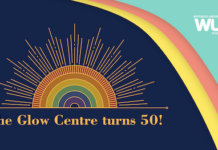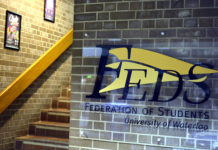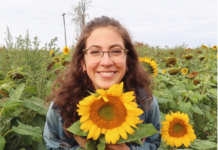The University of Waterloo has once again garnered national interest thanks to the launch of associate professor Dr. Bessma Momani’s Trudeau Foundation project. Entitled “Arab Canadian Youth: Pursuing Responsible Citizenship to Counter Disempowerment & Disengagement,” its goal is to address the many challenges faced by Arabic youth, including discrimination, negative media portrayal, and perceived lack of loyalty, despite Arabs being present in Canada since the late 1800s. “This new wave of immigrants, unlike any previous generation is now more transnational than any other generation … with more connection to their homelands, the events, and home politics than the immigrants of any generation before,” said Momani. “Because they’re more connected today, this often makes people think that it makes them less loyal. Really it just means they have the ability to be a part of two cultures, and we tend to find that unsettling.”</p>
The project has a total budget of $224,508 and will run for three years. During the first year, three-day workshops will be run in Toronto, Montreal, Vancouver, and Edmonton, expanding into Ottawa, Windsor, and London in the second year. In the final year, a policy workshop will be held to bring together scholars, government, and community representatives. The information will be used to design future programs and tools to combat marginalization and encourage civic engagement.
Momani theorizes that these negative perceptions are compounded by national security concerns and the mass media’s tendency to cherry pick information. This is further complicated by the immigrants leading what Momani refers to as “parallel lives.” She described this as, “New immigrants are participating in both worlds.… They can keep up with the latest jokes in their homeland. It’s not that they don’t love Canada — they just have the ability to still be part of their homelands as well and they remain aware of what is going on. It allows them to have access to information that any immigrant, 10, 20, 50 years ago would have wished they could have had.”
Part of her research also deals with trying to reduce an occurrence known as the Bosnia Effect: a social scenario with origins in the Yugoslav Wars. It is “the frustration of Bosnian immigrants who perceived that the world didn’t care about Bosnia and their crisis,” explained Momani. “When we don’t react to crises in areas, the population from that region are offended that the government doesn’t do something to assist. This leads to an unhealthy reaction where they perceive that the government and society doesn’t care. There’s a whole host of reasons why governments may not react, it doesn’t mean we’re not empathetic, it just means there is a whole host of other reasons that lead to inaction.”
Momani recommends checking out assistive services such as lifelinesyria.ca, where you can donate things such as translation services to assist new immigrants and “[put] pressure on our members of parliament.”
“As a great big country we can afford to bring in more people. The simplest thing that Syrian families want right now is family unification — people want to bring a cousin who is in a dangerous zone or a brother and their family. These aren’t people who will end up on the streets of Toronto; they will be absorbed into a family home and taken care of. We need to keep in mind that these Syrian Canadians are highly educated individuals, bilingual, possibly trilingual…. There is a real advantage to having highly educated professionals come to our country and contribute. It’s important for our tax base and important for our long-term demographic future, so there’s lots to be gained. We win when immigrants come to this country,” said Momani.
Momani has authored and edited six books and over 55 scholarly articles, peer reviewed book chapters, and articles, and serves as an associate professor at both the University of Waterloo and the Balsillie School of International Governance and Innovation. In addition, she was formerly a non-resident senior fellow at the Brookings Institute in Washington, a Canada-United States Fullbright Scholar, and a visiting scholar at Georgetown University’s Mortara Center and the Amman Institute in Jordan. She attributes her success to her passion for her work. “When you are passionate about an issue, you become successful…. You feel it has a higher purpose,” she explained. “I love my job, I love being able to talk about issues that matter to me. You can’t buy passion, it’s in you.”





























